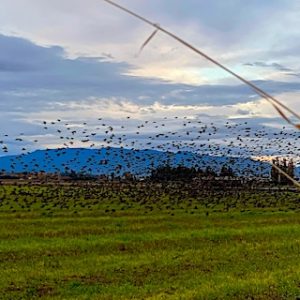 The Columbia City Yoga on-line Moving into Meditation class met this morning. We explored how mindfulness can help us navigate in the world. We reflected on how we need each other to create the space of loving awareness. We need each other to bring mindfulness into its mature expression as heartfulness. I am so deeply grateful for the meaningful conversations I’ve had with dear ones this week.
The Columbia City Yoga on-line Moving into Meditation class met this morning. We explored how mindfulness can help us navigate in the world. We reflected on how we need each other to create the space of loving awareness. We need each other to bring mindfulness into its mature expression as heartfulness. I am so deeply grateful for the meaningful conversations I’ve had with dear ones this week.
We continued to draw from Oren Jay Sofer’s new book: Your Heart Was Made for This: Contemplative Practices for Meeting a World in Crisis with Courage, Integrity, and Love. We reflected on how the awareness of life’s impermanence can help us be more present in the world. This presence is integral to deep conversation and helpful action in the world.
 We heard William Stafford’s poem, Ritual to Read Each Other. The poem encourages us to reflect on how we understand ourselves and others. Patterns and assumptions can misguide and mislead us. The poem speaks about our need of each other in finding our way in life. Paradoxically, we need to find one another so that we might not lose ourselves. You can find a wonderful exposition of the poem’s meaning at the Growing Edge podcast program, A Ritual to Read Each Other. This is a conversation between musician Carrie Newcomer and writer, teacher, activist Parker Palmer.
We heard William Stafford’s poem, Ritual to Read Each Other. The poem encourages us to reflect on how we understand ourselves and others. Patterns and assumptions can misguide and mislead us. The poem speaks about our need of each other in finding our way in life. Paradoxically, we need to find one another so that we might not lose ourselves. You can find a wonderful exposition of the poem’s meaning at the Growing Edge podcast program, A Ritual to Read Each Other. This is a conversation between musician Carrie Newcomer and writer, teacher, activist Parker Palmer.
Guided Reflection
Last week we explored mindfulness as “heartfulness.” We cultivated embodied presence. We invited the heart’s wisdom to reveal itself. We focused on our relationship with our inner life. This week we’ll continue exploring how mindfulness can help us navigate our life in the world. In his book, Your Heart Was Made for This, Oren writes:
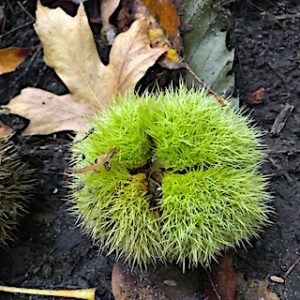 Developing mindfulness gives us back our life. We awaken from sleepwalking . . . and rediscover the richness and vibrancy of the world. We are present for the heat, aroma and flavor of a cup of tea. We relish the presence of a loved one . . .Life is made of moments. If we are not present, they slip by as in a dream. I am so grateful for the moments of presence I had with my father before he died.
Developing mindfulness gives us back our life. We awaken from sleepwalking . . . and rediscover the richness and vibrancy of the world. We are present for the heat, aroma and flavor of a cup of tea. We relish the presence of a loved one . . .Life is made of moments. If we are not present, they slip by as in a dream. I am so grateful for the moments of presence I had with my father before he died.
This week I had a chance to have meaningful conversations with a number of my dear ones. I learned more about their lives, their struggles and their worries. I also learned how they’ve grown over the years. I have a deeper appreciation for the tender poignancy of their lives. I have a deeper appreciation for how alike we are in our hopes and vulnerabilities. As Oren says “Life is made up of these moments” and I am grateful for them. Heartful presence in these conversations also moved me to take helpful action. The actions arose from the understandings born in these relationships.
Oren also describes how mindfulness offers a way of metabolizing the challenges of being human. He writes:
We practice mindfulness, we don’t just feel pleasant, loving moments. We learn to feel all of life, the hurt and pain, fear and anger, contraction and numbness.
We can feel our experience. We can hold it in a supportive inner container which is the space of loving awareness. We can learn so much when we are able to turn toward experience rather than away from it. This patient, feeling, learning can help us to develop “more enduring qualities like wisdom, compassion and equanimity.” These qualities are integral to taking helpful action.
Oren writes:
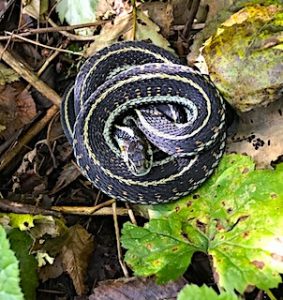 . . . the more directly we connect with experience the more we begin to see its impermanent nature . . . . when we investigate our relationships and experiences with mindfulness, we see how much history has shaped our roles, sense of self, worldview and access to opportunity and resources. Life is rich and fleeting. The more acutely we appreciate impermanence, the more our mindfulness matures into equanimity, wise and balanced perspective. And with this wisdom we may find ourselves . . . anchoring our search for fulfillment in more meaningful pursuits.
. . . the more directly we connect with experience the more we begin to see its impermanent nature . . . . when we investigate our relationships and experiences with mindfulness, we see how much history has shaped our roles, sense of self, worldview and access to opportunity and resources. Life is rich and fleeting. The more acutely we appreciate impermanence, the more our mindfulness matures into equanimity, wise and balanced perspective. And with this wisdom we may find ourselves . . . anchoring our search for fulfillment in more meaningful pursuits.
I deeply appreciate these encouraging and hopeful insights from Oren and from my dear ones. This week’s conversations with friends and family members have inspired me to remember the loving kindness we are capable of. They reminded me that we need each other to create the space of loving awareness. We need each other to bring mindfulness into its mature expression as heartfulness.
Poet William Stafford’s Ritual to Read to Each Other speaks to how we need each other:
 If you don’t know the kind of person I am
If you don’t know the kind of person I am
and I don’t know the kind of person you are
a pattern that others made may prevail in the world
and following the wrong god home we may miss our star.
For there is many a small betrayal in the mind,
a shrug that lets the fragile sequence break
sending with shouts the horrible errors of childhood
storming out to play through the broken dike.
And as elephants parade holding each elephant’s tail,
but if one wanders the circus won’t find the park,
I call it cruel and maybe the root of all cruelty
to know what occurs but not recognize the fact.
And so I appeal to a voice, to something shadowy,
a remote important region in all who talk:
though we could fool each other, we should consider—
lest the parade of our mutual life get lost in the dark.
For it is important that awake people be awake,
or a breaking line may discourage them back to sleep;
the signals we give — yes or no, or maybe —
should be clear: the darkness around us is deep.
Let us not miss our star. Let us, together, awaken.
Let’s sit together as these many words and ideas, images and associations move through our body/minds. You might take a few deep slow breaths feeling the largest sensations of breathing in deeply. Feel how they may diminish with the smallest sensations of breathing out completely. As you are ready let the breath, breathe itself. Each passing moment, relax what ever you can. See if you can give yourself over to allowing. Allow the body to settle.
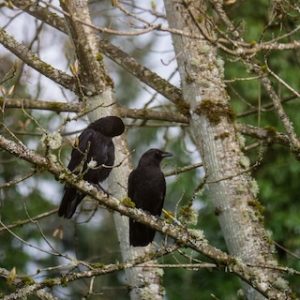 Notice what you are aware of. Is it possible to explore this awareness in the body? What is the felt sense of this awareness? How is it to be present with feeling? Notice any impulse to jump out of feeling and into thinking. Can you let there be spacious awareness around this impulse? Notice your response. How would it be to meet your response in an allowing way, or even compassionate way? Moment by moment, bring your attention to this experience of being. Curious. Aware. Notice the transitory nature of being. Nothing is permanent.
Notice what you are aware of. Is it possible to explore this awareness in the body? What is the felt sense of this awareness? How is it to be present with feeling? Notice any impulse to jump out of feeling and into thinking. Can you let there be spacious awareness around this impulse? Notice your response. How would it be to meet your response in an allowing way, or even compassionate way? Moment by moment, bring your attention to this experience of being. Curious. Aware. Notice the transitory nature of being. Nothing is permanent.
Bring your awareness to those areas where your body feels the support of Earth’s body. Breathe and sense how these two living bodies relate to one another. Is it possible to relax and explore this experience of connection? Breathe and sense how it feels to breathe together. Let yourself breathe in and out of the space of the room you are sitting in. What might you discover about yourself if you were to receive the in-breath as a gift? Offer the out-breath as a gift?
Breathing and sensing embodiment. Feeling emotion in the body. Feeling thinking in the body. We can explore breathing in this way, in caring relationship, taking nothing, doing no harm. We are moving out of habits of harm as we enter and abide in loving awareness. Loving awareness. Awake. Spacious. Boundless. Touching all that arises. Everything belongs. We are learning “to feel all of life, the hurt and pain, fear and anger, contraction and numbness.”
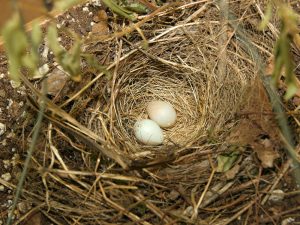 In this space of loving awareness we might experience our shared humanness, our shared creatureliness. We might experience our shared vulnerabilities and our shared compassion. We might affirm our inter-being with consideration and respect, by the compassionate way we move through the world. This practice invites us to open ourselves so that our assumptions and beliefs about who we are can adjust and grow. A practice of openness and receptivity to life’s many moments. We might “appreciate impermanence . . . so that our mindfulness matures into equanimity, wise and balanced perspective.”
In this space of loving awareness we might experience our shared humanness, our shared creatureliness. We might experience our shared vulnerabilities and our shared compassion. We might affirm our inter-being with consideration and respect, by the compassionate way we move through the world. This practice invites us to open ourselves so that our assumptions and beliefs about who we are can adjust and grow. A practice of openness and receptivity to life’s many moments. We might “appreciate impermanence . . . so that our mindfulness matures into equanimity, wise and balanced perspective.”
It’s also a practice of responsiveness. As difficult as it may be, we can remember that we are not alone. Let us heed William Stafford’s:
. . . appeal to a voice, to something shadowy,
a remote important region in all who talk:
though we could fool each other, we should consider—
lest the parade of our mutual life get lost in the dark.
For it is important that awake people be awake,
or a breaking line may discourage them back to sleep;
the signals we give — yes or no, or maybe —
should be clear: the darkness around us is deep.
